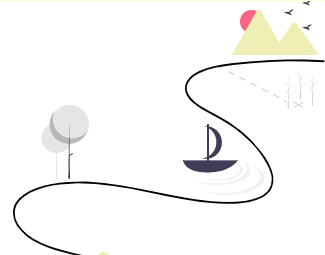An international workshop on conserving salt lake brine shrimp (Artemia) resources for aquaculture was held at the headquarters of Food and Agriculture Organization of the United Nations (FAO) in Rome from 2nd-6th September 2024. The event was organized by FAO and the Network of Aquaculture Centers in Asia-Pacific (NACA), with the financial support of the Alliance of National and International Science Organizations for the Belt and Road Regions (ANSO) and the Royal Academy for Overseas Sciences (RAOS), in cooperation with the International Artemia Aquaculture Consortium (IAAC). More than 40 participants from universities, scientific research institutions and enterprises of 13 countries attended the conference and carried out in-depth discussions and information exchange on the protection and sustainable development of Artemia resources.
YUAN Xinhua, Deputy Director of Fisheries and Aquaculture Division of FAO, Philippe De Maeyer, Permanent Secretary of RAOS, Simon Wilkinson, Representative of NACA, and Representative of ANSO Secretariat, delivered opening speeches at the conference. They highly affirmed the importance of Artemia resources to the development of global aquaculture, and stressed the importance of this training to strengthen international cooperation and to promote the protection of salt lake environment and sustainable development of Artemia resources.
During the Presentation session, Alishir Kurban, professor at the Xinjiang Institute of Ecology and Geography of the Chinese Academy of Sciences, Patrick Sorgeloos, professor at the Ghent University in Belgium, and Naser Agh, professor at the Urmia University in Iran, etc. reported the global climate change on the salt lake environment and its impact on water resources and Artemia resources. Thomas Bosteels and Tim Hawkes from the Great Salt Lake Advisory Committee in the United States, SONG Gao, Vice President of the Artemia Branch of China Aquatic Products Distribution and Processing Association, and Liudmila Litvinenko, researcher at the State Agrarian University of the Northern Trans-Urals in Russia, etc. reported the situation of the harvesting and marketing of Artemia cysts in different countries, and discussed the future trend of Artemia resources utilization in regard to the management and quota system. Graham Mair from the Fisheries and Aquaculture Division of FAO, introduced the FAO AquaGris project, SUI Liying, professor at the Asian Regional Artemia Reference Center and Tianjin University of Science and Technology of China, Gonzalo Gajardo, professor at the Los Lagos University of Chile, etc., reported the genetic diversity research progress of Artemia populations, and proposed new methods for the protection of Artemia genetic resources. After thorough discussion, recommendations were made on attaching great importance to the construction of Artemia germplasm banks for conserving Artemia germplasm resources, formulating sound strategies for ecological environment monitoring, Artemia harvesting and management, and carrying out research on the genetic diversity of Artemia population and their adaptability to global climate change.
The workshop promoted knowledge sharing, technology dissemination, capacity building and international cooperation in conserving and utilizing Artemia resources sustainably, providing a platform for internationals scientists to exchange their research outcomes.
Opening Ceremony
Contributors:
Alishir Kurban, Xinjiang Institute of Ecology and Geography, Chinese Academy of Sciences
HAN Xuekai, Tianjin University of Science and Technology

